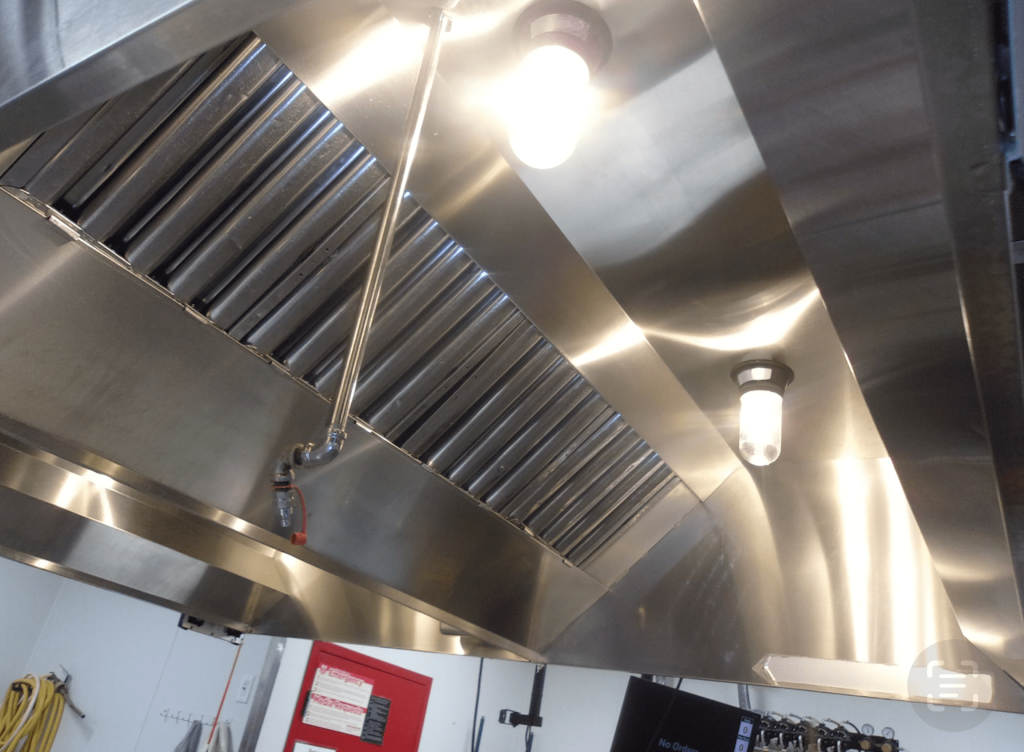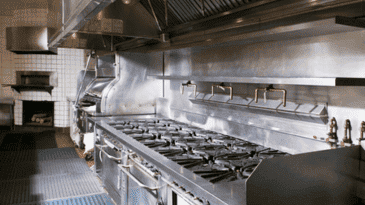Chicago Hood Cleaning
Kitchen Exhaust Cleaning in Park Ridge, IL
Rated 5 stars on Google

Could Your Kitchen Exhaust Be Hiding These Problems?
Check out the top issues a dirty kitchen exhaust can cause.
Grease Buildup
Grease builds up over time in your vents and fans. It makes your kitchen feel dirty, no matter how much you clean the counters.
Bad Smells
A dirty exhaust keeps cooking smells hanging around. No matter what you spray, the bad smell won’t leave.
Smoke in the House
If your exhaust isn’t clean, smoke and steam don’t get pulled out. It fills your space with smoke and steam.
Fire Danger
Grease buildup can easily catch fire. Fires can start from just one spark in a greasy vent.
Poor Airflow
When your exhaust is clogged, air can’t move the way it should. Your space heats up quickly and feels uncomfortable.
Mold and Bacteria
Grease and steam can cause wet spots inside the vents. That can lead to unhealthy air and even sickness.
Why Choose Us for Kitchen Exhaust Cleaning?
We make it easy to keep your kitchen clean, safe, and worry-free.

We Keep Your Home Safer
Grease buildup is a fire hazard. We clean it out so you can cook without worry.

We Use Safe, Powerful Tools
Our tools are made for this job—strong enough to clean deeply, safe enough for your home.

We Show Up On
Time
No waiting around all day. We arrive when we say we will and work fast.

Breathe Easy With a Clean, Safe Kitchen in Park Ridge, IL
You deserve a kitchen that’s safe, fresh, and easy to enjoy—not one filled with smoke and sticky grease. But over time, grease and grime build up inside your kitchen exhaust system. That buildup can block airflow, trap odors, and even create a serious fire hazard.
What Is Kitchen Exhaust Cleaning?
We clean out grease, grime, and dust from your exhaust hood, fan, and vents. This system pulls heat, smoke, and smells out of your kitchen—but only if it’s clean.
Why It Matters for Homeowners and Contractors
No matter if you’re a homeowner or a contractor, kitchen exhaust issues can quickly add up:
– Lingering Odors – Smells from old meals don’t go away
– Smoke Inside – Steam and smoke stay trapped in your kitchen
– Fire Risk – Sticky grease becomes a fire danger
– Hot, Stuffy Air – Your kitchen heats up fast
– Mold & Bacteria – Dirty ducts can lead to mold in your kitchen
We Make It Simple for You
We keep things quick and simple. We arrive when we say we will and take care of everything the right way. People in Park Ridge, IL count on us for safe, clean kitchens that work better.
Ready for a Fresher, Safer Kitchen?
Fresh air, clean vents, and no more grease—that’s what we bring. We’ll help you feel good about your kitchen again.

We Proudly Serve in Park Ridge
Park Ridge, Illinois is a charming city with a rich history dating back to its founding in 1873. Originally a quiet suburb of Chicago, Park Ridge has grown into a vibrant community known for its excellent schools, beautiful parks, and friendly neighborhoods. Residents enjoy a high quality of life in this safe and welcoming city, making it a great place to call home.
One of the city’s main attractions is the historic Pickwick Theatre, a beloved landmark that has been entertaining residents for nearly a century. Park Ridge also boasts a variety of local shops, restaurants, and cultural events, giving the community a strong sense of identity and pride.
We would like to extend our gratitude to the residents of Park Ridge for their continued support and business. As a kitchen exhaust cleaning contractor, we are proud to serve this wonderful community and look forward to continuing to provide top-notch service to our customers. Thank you, Park Ridge, for welcoming us into your homes and businesses.
Frequently Asked Questions
Kitchen exhaust cleaning removes grease, smoke, and dirt from your exhaust hood, fan, and duct system. This helps keep your kitchen air clean and reduces fire risks.
Over time, grease and grime build up inside the system. This can cause bad smells, smoke in the kitchen, poor airflow, and even fires if left uncleaned.
For homes, we recommend cleaning every 6 to 12 months depending on how often you cook. For commercial kitchens, it should be done more often—every 1 to 3 months.
Most home exhaust cleanings take 1–2 hours. Larger or commercial systems may take longer, depending on the size and buildup.
Not at all. We cover nearby areas, use professional tools, and always clean up when we’re done. Your kitchen will be left cleaner than we found it.
Yes. Grease and smoke trapped in the system often cause lingering smells. Cleaning removes the source of those odors.
We offer fair, affordable pricing based on the size of your system and the level of buildup. It’s a small cost compared to fire damage or poor indoor air.
